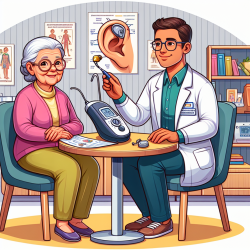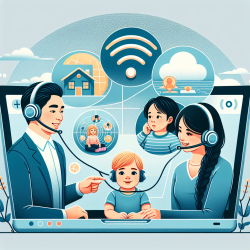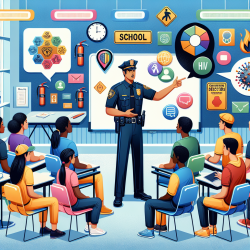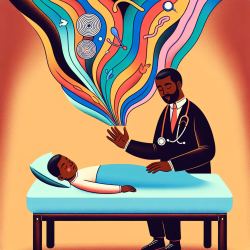Effective communication is vital for the well-being and quality of life of elderly individuals, particularly those residing in care facilities. However, hearing loss, a common issue among the elderly, significantly impacts their ability to communicate effectively, leading to isolation and decreased social interaction. The research article, "Resident and Staff Education Within an Ecological Audiologic Rehabilitation Program in a Home for the Aged," provides valuable insights into how a comprehensive audiologic rehabilitation program can enhance communication for the elderly with hearing loss.
The study implemented an ecological approach to audiologic rehabilitation, focusing on not just the individual with hearing loss but also their communication partners and the environment. This approach recognizes that effective communication involves more than just the ability to hear; it also requires the active participation of those within the communication environment and the optimization of that environment to support communication.
Key components of the program included:
- Hearing assessments and the provision of personal hearing aids and assistive devices.
- Environmental modifications to maximize accessibility.
- Education for both residents and staff about hearing loss and related disabilities.
- Training in communication strategies.
One of the most significant outcomes of this program was the improvement in communication between residents and staff. Through education and training, staff members became more aware of the challenges faced by residents with hearing loss and learned strategies to facilitate better communication. This not only improved the quality of care provided but also enhanced the social interactions and overall well-being of the residents.
For practitioners looking to implement similar programs in their facilities, it is crucial to adopt a holistic approach that includes assessment, intervention, and continuous education for both residents and staff. Training should focus on practical strategies for overcoming communication barriers, such as how to use and maintain hearing aids and assistive devices, understanding the impact of environmental factors on communication, and developing effective conversational strategies.
Furthermore, encouraging further research in this area can lead to the development of more effective strategies and technologies to support communication for the elderly with hearing loss. Practitioners can contribute to this field by sharing their experiences and outcomes from implementing audiologic rehabilitation programs, thereby adding to the collective knowledge base.
Improving communication for the elderly with hearing loss requires a committed effort from care providers, families, and the individuals themselves. By adopting a comprehensive and ecological approach to audiologic rehabilitation, we can significantly enhance the quality of life for our elderly population.
To delve deeper into the specifics of the program and its outcomes, I encourage reading the original research paper. For further insights, please follow this link: Resident and Staff Education Within an Ecological Audiologic Rehabilitation Program in a Home for the Aged.










